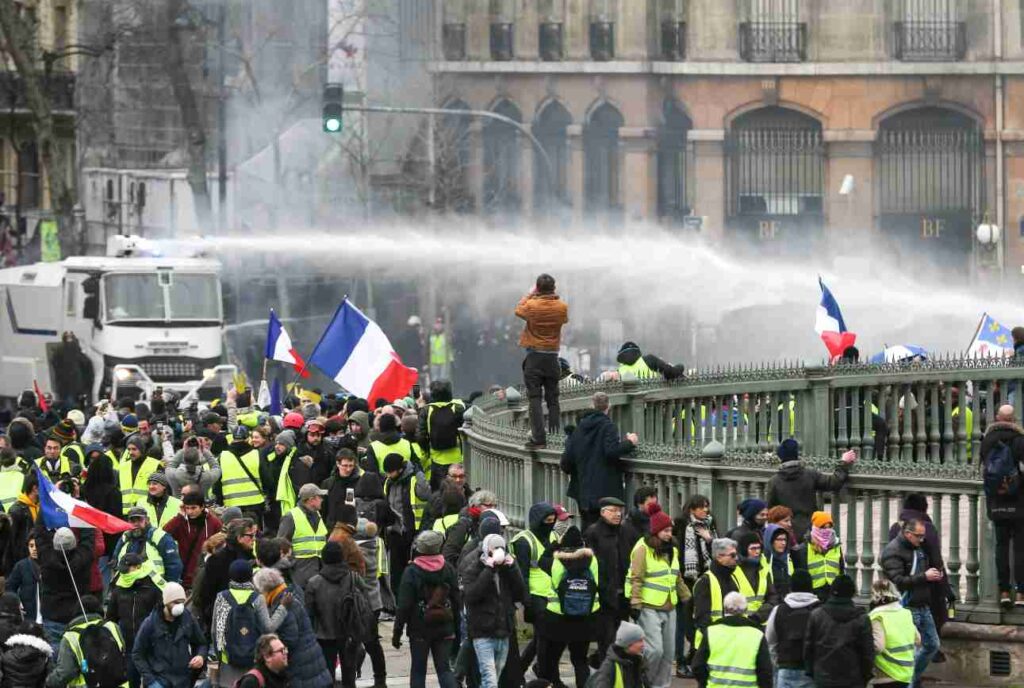
France finds itself at a critical juncture as President Emmanuel Macron grapples with the challenges posed by the ongoing civil unrest. The escalating protests and discontent within the country raise important questions about Macron’s leadership and his ability to effectively address the deep-rooted issues at the heart of the unrest.
One of the key challenges faced by Macron is the perceived disconnect between his administration and the concerns of the French people. Critics argue that his policies have favoured the wealthy and failed to adequately address the socio-economic disparities that have fueled public anger. Macron’s leadership is being tested as he navigates the delicate balance between addressing the legitimate grievances of the protesters and maintaining stability in the country.
- Advertisement -
Another challenge lies in the government’s response to the unrest. Critics argue that Macron’s initial dismissive approach and lack of empathy further fueled the frustrations of the protesters. The use of heavy-handed tactics by the police during the protests has also sparked accusations of excessive force and a failure to address police violence and accountability. Macron must now find a way to regain the trust of the public and demonstrate a genuine commitment to addressing their concerns.
Furthermore, Macron faces the challenge of effectively engaging with the diverse range of demands put forth by the protesters. The unrest encompasses a broad spectrum of issues, including socio-economic inequalities, discrimination, police violence, and the lack of opportunities for the youth. Macron must demonstrate the ability to listen to and address these demands in a comprehensive and meaningful manner. This requires a careful balancing act to ensure that policy changes are both responsive to the needs of the people and economically sustainable.
Additionally, Macron’s leadership is being tested in the international context. France’s image and reputation have been significantly impacted by the protests, and it is crucial for Macron to manage the perception of the country both domestically and abroad. The outcome of these protests will have implications not only for Macron’s presidency but also for France’s position within the European Union and its standing on the global stage.
- Advertisement -
In navigating these challenges, Macron has an opportunity to display true leadership by embracing dialogue, fostering a spirit of inclusivity, and working towards tangible solutions. It is essential for him to acknowledge the valid concerns of the protesters and engage in constructive discussions with various stakeholders. This entails pursuing meaningful reforms that address the underlying causes of unrest, such as socio-economic disparities and police accountability.
Ultimately, the future of Macron’s leadership rests on his ability to effectively address the grievances of the French people and restore faith in the government. This requires a comprehensive and holistic approach that goes beyond short-term measures and cosmetic changes. Macron must seize this critical moment to evaluate policies, build bridges of understanding, and forge a path towards a more equitable and inclusive France.
In conclusion, France stands at a crossroads, and Macron’s leadership is facing significant challenges amidst the ongoing unrest. The effectiveness of his response will determine not only his political future but also the future trajectory of the country. By embracing dialogue, addressing core issues, and demonstrating a genuine commitment to change, Macron can navigate these challenges and guide France towards a more just and prosperous future.
- Advertisement -
The Power Of Protests: Analyzing The Role Of Youth In France’s Unrest And Their Demands For Change.
Unemployment Woes: Assessing The Youth Unemployment Crisis And Its Contribution To France’s Ongoing Unrest






